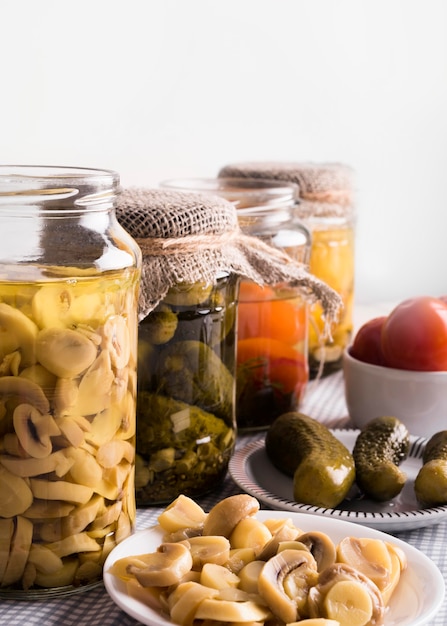
Fermented foods like sauerkraut, kimchi, and kefir are everywhere these days, but can they really improve your health? 13 years ago, Donna Schwenk was 41, pregnant with her third child, and developed preeclampsia, leading to an early C-section. Both she and her baby faced health issues; her liver was failing, the baby was born underweight, and Donna developed diabetes and high blood pressure.
In her search for answers, Donna discovered a book about kefir in a health food store. Intrigued, she started adding kefir to her diet and her newborn’s bottles. Within a short period, both she and her baby saw significant health improvements. Donna felt healthier and more energetic, attributing these changes to the bacteria-rich fermented foods.
Donna believes fermented foods such as kefir can significantly impact our gut health, boosting digestion, immunity, metabolism, and even mood. She’s featured in a PBS Special “Health Breakthroughs,” which looks at how fermented foods contribute to health. The popularity of fermented foods is growing, even being highlighted as a future food trend by The New York Times.
Fermented foods can help with weight loss, skin health, and energy levels. Increasing research points to gut health as key to overall well-being. Kathie Swift, a clinical nutritionist, says gut health impacts many conditions from autoimmune diseases to migraines. Improving gut health by balancing bacteria can have wide-ranging health benefits. Studies have shown that gut bacteria can influence weight and mental health.
As we age, bad bacteria often outnumber good bacteria due to factors like diet, stress, and medications. This imbalance can lead to various health issues, but improving gut flora with good bacteria can help. Fermented foods provide a wide variety of beneficial bacteria, unlike some supermarket probiotic drinks which may lack long-term benefits and often contain high sugar levels.
Different fermented foods offer different strains of good bacteria. Including a variety in your diet helps ensure you get a broad spectrum of these beneficial microbes. Probiotic pills may not be as effective as actual fermented foods, and some pills may contain undesirable bacteria.
Fermenting foods is an age-old practice found in cultures worldwide. It enhances nutrient availability, preserves food before refrigeration, and aids digestion. For example, the Japanese diet includes various fermented foods, potentially contributing to their long life expectancy.
When adding fermented foods to your diet, moderation and variety are essential. Start with small amounts to avoid digestive discomfort, as too much too soon can cause gas and abdominal pain due to an initial internal battle between good and bad bacteria.
DIY fermentation is simple and can offer diverse and beneficial bacteria strains. You can start small with one type of fermented food, gradually expanding your variety. Foods like kefir, sauerkraut, miso, coconut yogurt, and kombucha are good options. Remember, fermented foods are not new but rather a return to traditional practices that promote health.